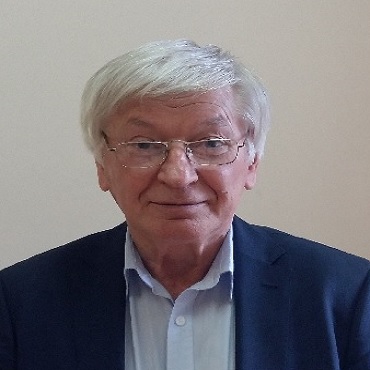Scientific Program

IZNAK AF & IZNAK EV
Mental Health Research Centre, Moscow, Russia
Title: Cognitive effects of TMS in combined treatment of depression
Biography:
Andrey IZNAK has completed his PhD (in neurophysiology) at the age of 26 in 1971, and received his DSc degree (physiology) at the age of 44 in 1989 from M.V.Lomonosov Moscow State University, Moscow, Russia. He is neurophysiologist, Professor of physiology (2005) and Head of Laboratory of Neurophysiology at Mental Health Research Center, Moscow, Russia since 1984. He has published more than 100 papers on sensory physiology, psychophysiology and clinical neurophysiology in reputed journals, two monographs and 7 chapters in Handbooks on psychiatry. As well, he is editorial board member of several Russian and international reputed journals.
Abstract
Objectives: The aim of the study was the assessment of cognitive effects of combined treatment of depression included TMS.
Methods: 50 female depressive patients (F31.3, F33.0, F33.1 by ICD-10), aged 18-56 years, were randomly divided into two groups. 23 patients (control group) were treated with SSRI antidepressants, 27 patients (TMS group) received the same medication together with the course of TMS. 15 daily sessions of high-frequency TMS (25 Hz, 40 series by 2 sec with 14 sec intervals, total 1600 pulses) were applied to the projection of the left dorsolateral prefrontal cortex (DLPFC). Relatively low TMS intensity (60-80% of primary motor threshold) was individually chosen to prevent facial muscles jerks with spread of proprioceptive impulses to the right somatosensory cortex.
Results: After 3 weeks of treatment both groups demonstrated highly significant (p<0,01÷0,001) improvement of clinical (by HDRS-17), and of general psychological conditions (by SCL-90-R inventory), and of cognitive decision-making functions (by WCST and IGT tests). Significantly better improvement in TMS group in comparison to control group was obtained by SCL-90-R “Present distress severity index” (p<0,04), and by “Percent of perseveratory errors” in WCST test (p<0,03), and by “Exceed of “good” choices above “bad” ones” in IGT test (p<0,05), but not by HDRS-17.
Conclusions: In combined antidepressant treatment, TMS of the left DLPFC seems to improve mainly general psychological conditions and cognitive decision-making functions of DLPFC and of orbito-frontal cortex, while pharmaco-medication affects depressive mood disorders.
- Electroconvulsive therapy (ECT)
- Transcranial Magnetic Stimulation (TMS)
- Deep Brain Stimulation (DBS)
- Transcranial Direct Current Stimulation (tDCS)
- Brain and Neurological Disorders
- Neurology / Neurobiological Diseases
- Neurodegeneration & Aging Disorders
- Mental disorder / Mental illness
- Cognitive Neuropsychiatry
- Neurosurgery
- The neurobiology of climate change

